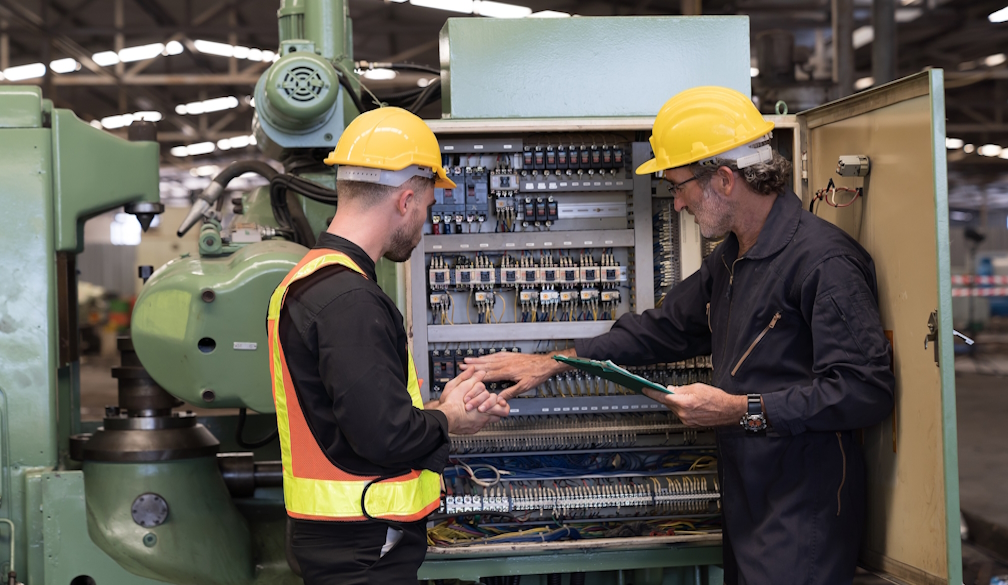Managing Labour & Subcontractors as Your Electrical Business Grows

As electrical companies expand, one of the biggest challenges business owners face is managing labour and subcontractors effectively. Whether you’re offering same day electricians for urgent jobs or taking on large-scale commercial projects, growth brings complexity, and the way you manage your team can make or break your reputation.
1. The Shift from Hands-On Work to Team Management
In the early stages of running an electrical business, most owners are deeply involved in day-to-day operations, quoting jobs, attending callouts, and maintaining customer relationships. But as demand grows, your focus must shift from being “on the tools” to managing people and processes.
This transition can be difficult. It requires systems, delegation, and a clear understanding of your workforce capacity. Having reliable 24/7 electricians on your team or network ensures that customer expectations are met around the clock without burning out your core staff.
2. Building a Trusted Network of Subcontractors
Subcontractors are invaluable when managing fluctuating workloads or specialised projects. However, they also introduce risk if not managed properly.
To build a trusted subcontractor network:
- Vet thoroughly: Check licences, insurance, and references. Australian electrical standards must always be adhered to.
- Set expectations early: Define job scopes, payment terms, and safety protocols from the outset.
- Maintain open communication: A transparent relationship avoids misunderstandings and ensures smooth project delivery.
A dependable subcontractor network allows your business to respond quickly to customer needs, whether that’s a late-night power outage or a same-day wiring job.
3. Implementing Clear Systems and Processes
Consistency is key to scaling successfully. Implementing structured systems for scheduling, invoicing, and reporting keeps everyone on the same page.
Consider using job management software designed for trades. These platforms help track staff availability, manage work orders, and provide real-time updates from the field. This level of organisation is critical when coordinating multiple emergency electricians and subcontractors across different sites.
Automation also reduces administrative headaches. Digital timesheets, automated quotes, and integrated accounting software save time and reduce errors, freeing you to focus on business growth rather than paperwork.
4. Investing in Training and Safety
As your workforce expands, maintaining consistent quality and safety standards becomes more challenging. Investing in regular training ensures every electrician, whether employee or subcontractor, performs work that meets your brand’s standards.
Safety should remain non-negotiable. From proper PPE to updated risk assessments, creating a culture where safety comes first protects both your workers and your reputation. A well-trained team is also more confident and efficient, leading to happier clients and fewer call-backs.
5. Communication Is the Key to Coordination
In a growing business, clear communication channels prevent costly mistakes. Establish daily or weekly check-ins, and ensure every job has a designated supervisor or project lead. Encourage feedback from your team and subcontractors as they’re often the first to spot inefficiencies or potential hazards.
When communication flows smoothly, your team works more cohesively, deadlines are met, and customer satisfaction rises. This is especially vital when dispatching same day electricians or responding to after-hours emergencies, where coordination can make the difference between success and chaos.
6. Plan for Sustainable Growth
It’s easy to chase every opportunity that comes your way, but sustainable growth requires strategic planning. Understand your capacity limits and only take on additional projects when you have the labour and systems to support them.
Regularly review your subcontractor performance, cash flow, and workload distribution. This ensures that your 24/7 electricians can handle demand without compromising service quality.
Final Thoughts
Managing labour and subcontractors as your electrical business grows isn’t just about hiring more people, it’s about building the right systems, culture, and partnerships. With careful planning and strong leadership, your business can scale sustainably while continuing to deliver safe, reliable, and timely electrical services.
Whether you’re responding to emergency callouts or planning commercial upgrades, the key to long-term success lies in efficient people management and consistent quality across every job.









